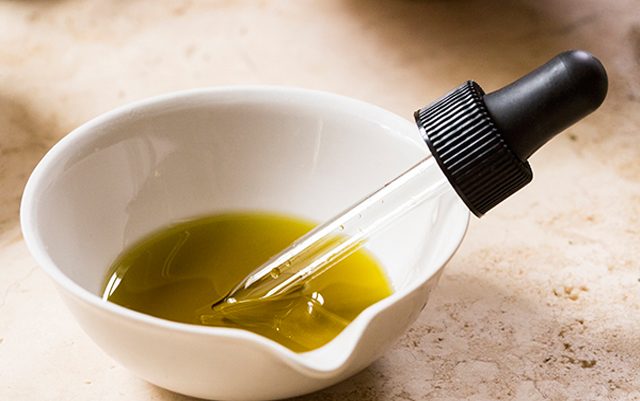When you read what industry prognosticators have to say about the future of the CBD industry, most don’t have anything to say that’s more useful than “the industry will continue growing.” Well, anyone can see that; all indications continue to suggest that CBD is the herbal gold mine of the decade. In this article, we’re going to dig a bit deeper by attempting to predict the key trends that will drive the CBD industry in 2020 in areas such as consumer preferences, novel new products and government regulation. We have no doubt that the CBD industry will continue its incredible rate of growth in 2020 and that popular brands like VSAVI will reap the benefits. In what ways, though, will the industry change and evolve? Let’s take a look.
CBD Users Will Demand Higher-Strength Products
Large-scale studies of CBD users have shown that most people take CBD to alleviate specific health conditions rather than for general wellness. Meanwhile, scientists continue to research CBD tirelessly in an attempt to determine whether it actually does alleviate those conditions. Medical journals are already filled with studies seemingly confirming many of CBD’s potential benefits, but most of the research consists of animal studies and small-scale human trials.
In 2020, journals will begin publishing more large-scale human trials, and those trials will likely confirm what the small-scale studies have already suggested: there are some conditions for which CBD is only effective at high doses. In the first few years of CBD’s popularity, lower-strength CBD oil was popular because it was the only affordable way of buying an otherwise extremely expensive supplement.
In 2020, CBD users will begin to demand higher-strength oils – and they’re not going to want to pay more than what they’re currently paying. Downward price pressure on the supply side will ensure that this change in consumer preferences doesn’t hurt the profitability of CBD brands too much. We’ll discuss that in greater detail shortly.
CBD Flower Will Become a Fashionable Alternative to Marijuana
Creative CBD brands have already begun to ship CBD flower to consumers across the country, and so far, it hasn’t created a problem among overzealous postal inspectors. Consumers who have tried CBD flower have embraced it as a form of cannabis that can be smoked legally and doesn’t cause impairment or couch lock. CBD flower isn’t just a great alternative to marijuana – it’s also an alternative to liquid CBD vaping products, which will likely experience decreased popularity in the United States this year.
CBD Vaping Products Will Experience a Downturn in the United States
The vaping lung illness that has sickened thousands of people in the United States over the past year has had a serious dampening effect on the popularity of all liquid vaping products, and that includes CBD vape pens and e-liquid. Many consumers, with no real way to tell for sure what’s safe, will start vaping or smoking CBD flower – or they’ll stop inhaling CBD altogether and will begin using other types of CBD products. CBD brands that manufacture vaping products can weather the storm by providing clear ingredient statements and having third-party labs test their products for Vitamin E and other undesirable additives.
Downward Price Pressure Will Make CBD More Affordable for Consumers
One of the reasons why CBD products are so expensive is because there’s a bottleneck in the supply chain in that there aren’t enough processors to extract the CBD from all of the hemp that’s being grown. That’s caused some hemp growers to store their harvests for later because the hemp processors already have as much biomass as they can handle and don’t want to buy more.
That problem can correct itself in one of two ways. Either farmers will begin to abandon hemp as a cash crop, or more hemp processors will appear. Our money is on the second option; as long as consumer demand for CBD products continues to grow, there’s plenty of money to be made in hemp processing. Additional hemp processors will remove the bottleneck from the supply chain, making raw hemp extract cheaper and more plentiful. CBD brands will offer higher-strength CBD oils, both because that’s what consumers will demand and because it’ll allow those brands to maintain their current retail price points.
A New CBD-Based Prescription Medication Will Receive FDA Approval
In 2018, the United States saw the first ever FDA approval of a CBD-based prescription medication: Epidiolex, an anti-seizure drug. In 2020, we’ll likely see the approval of a second prescription drug with CBD. Zygel is a topical CBD medication that alleviates behavioral issues associated with Fragile X syndrome. It has also shown effectiveness in Phase 2 clinical trials as a treatment for an epilepsy condition called Developmental and Epileptic Encephalopathies (DEE).
Zygel has received the fast-track designation from the FDA, meaning that the agency intends to review the drug’s application for approval expeditiously. The drug’s maker plans to meet with the FDA regarding the approval process in the first half of 2020.
The FDA Will Regulate CBD Products More Strictly
CBD is legal for sale in the United States due to the provisions of the 2018 Farm Bill, but it is not legal as a food additive or dietary supplement because the FDA has not approved CBD for those uses. The FDA is exploring both of those possibilities, but for now, brands need to be extremely careful about the language they use when marketing CBD. The agency has already sent several warning letters to brands using unapproved language to market CBD, and those warnings will come even more swiftly once the FDA finishes regulating the American vaping industry out of existence in May.
The Federal Government Will Continue to Mull Full Cannabis Legalization
It is probably inevitable that cannabis will eventually become fully legal in the United States. There’s strong support for it among citizens, and it would be far more beneficial for the federal government to earn money from taxing cannabis rather than throwing money away in a futile attempt to police it. No; cannabis won’t be fully legalized in the U.S. in 2020 – but there will definitely be progress in that direction.
Disclaimer: This article is intended for information and entertainment purposes only and is not intended to reflect the specific views of the publication.






